Editorial Manager, Economic Justice and Narrative Strategy
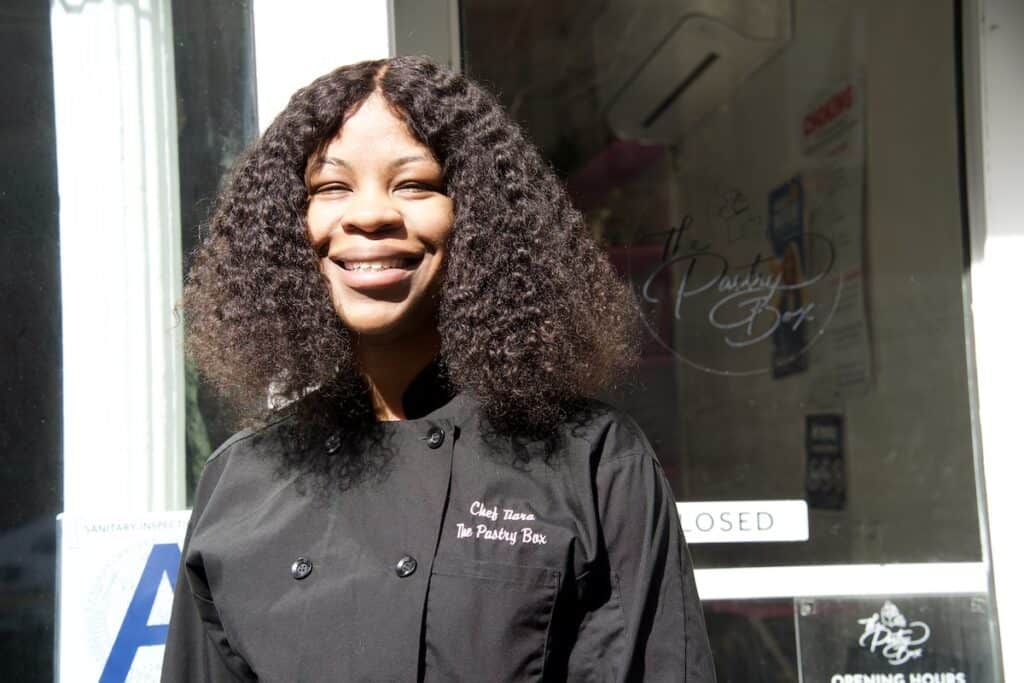
In the American imagination, stories of successful entrepreneurs are synonymous with freedom and prosperity. But for many Black people, the idea of opening and running a successful business remains out of reach due to social and economic barriers. Indeed, in an era where the federal government is openly antagonistic toward programs designed to level the playing field for small business owners, many could-be entrepreneurs will find doors previously open to opportunity now jammed shut. However, even in the face of seemingly insurmountable circumstances, stories of success still shine through.
Tiara Bennett, a Brooklyn-born chef whose bakery is as much about perseverance and community as it is about cookies and cake, is one such example.
On a side street in the East Village neighborhood of New York City sits a bakery aptly named The Pastry Box. Inside, the paint on the walls mimics the signature pink of popular pastry boxes. Customers weave in and out of the cozy space, leaving with black-and-white cookies, loaf cakes, and cupcakes, all freshly-baked. Things run smoothly, and based on reviews and repeat customers, the bakery is a success.
For Chef Tiara Bennett, getting to this point was not necessarily easy. In June 2020 — amid the COVID-19 pandemic and countless restaurant closures — she began offering homemade baked goods to her neighbors. The effort was an immediate success that brought her and her community a sense of joy and fulfillment. Three years later, she made it an official business venture and opened the doors to her bakery, selling classic favorites with a twist. In learning this, I was eager to discover what it took to go from neighborhood pop-up to brick-and-mortar storefront.
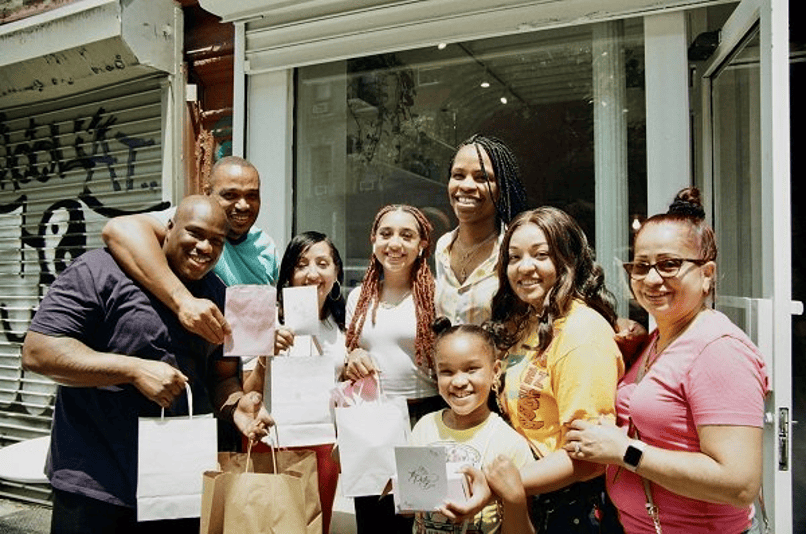
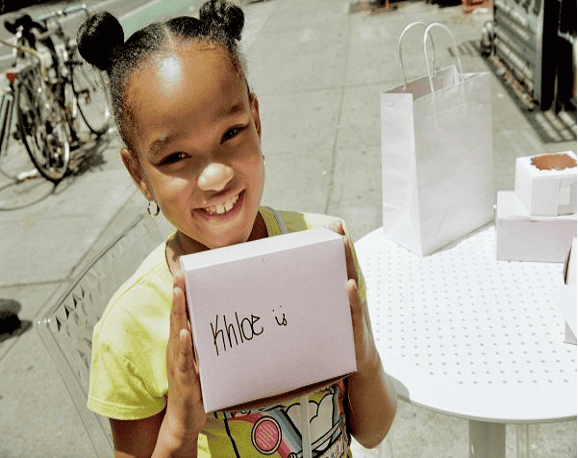
Bennett accepted my request for an interview and invited me to the shop on a day it was closed to the public so she and her staff could prepare for the week ahead. During our conversation, she shared more of her story and what it took to turn her dream into a reality.
“I grew up in the kitchen and my grandma made everything from scratch. It was always a joy to be in the kitchen with her. My lifelong dream was to open a bakery,” says Bennett.
Bennett went on to discuss her path to owning and running a business. Midway through her twenties, she found herself without a degree after leaving college due to financial limitations. It was then that she revisited pursuing her dream. Her love of combining food with art and culture led her to culinary school, and, after graduating with honors, she worked at various high-end restaurants throughout New York City.
Once restaurants began reopening after pandemic closures, she was hired to create and manage a pastry program for a cafe near Central Park. After showcasing her talent and dedication to her craft, Bennett’s boss at the time expressed interest in supporting her dream of opening a bakery, and the wheels were set in motion. The venture was met with mixed emotions.
“People in my neighborhood who knew me from passing out fliers and selling cookies before I had a shop were excited for me, but I was the first Black person to open a business on this block in decades, so there were some challenges,” Bennett notes.
Despite some initial hesitancy about its status as a newcomer in the East Village, The Pastry Box now sits as a welcome spot in the community and Chef Tiara expresses a genuine sense of belonging with the bakery’s neighbors. She eventually wants to start community programs educating youth on proper kitchen etiquette, baking techniques, and the ins and outs of starting a business.
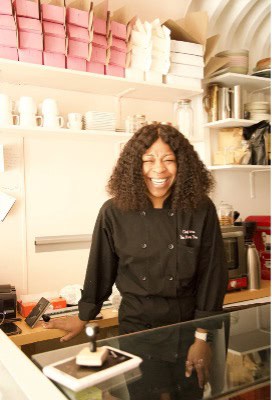
Owner of The Pastry Shop
Bennett’s bakery is an unquestionable success. Unfortunately for many Black entrepreneurs, though, success is often an anomaly achieved despite a system riddled with discriminatory barriers that don’t have to exist — and that these entrepreneurs shouldn’t have to overcome. While the image of the self-made entrepreneur remains central to the American ethos, the rugged individualism of “pull yourself up by your bootstraps” that accompanies it belies the social and economic realities of starting a business. Below, we take a closer look at the realities many Black entrepreneurs face in a biased system, the frustrating ways in which the current administration is seeking to dismantle supports created to help them overcome these discriminatory barriers, and why perseverance in spite of these challenges is still critical.
As the United States becomes more racially and ethnically diverse, the strength of the American economy will become increasingly reliant on businesses owned by people of color. However, despite some progress, a racial business ownership gap persists, with recent reports showing Black-owned businesses make up roughly 3% of all U.S. companies, while over 84% of businesses have white owners. This is more than a statistical gap, and does not indicate that Black people aren’t interested in or capable of owning businesses. What this gap reveals is a structural failure that is being exacerbated by a political climate increasingly hostile to race-conscious remedies for economic disparities.
Starting a business requires significant social and economic capital, but Black entrepreneurs often encounter discriminatory barriers that hinder their access to both. Discrimination in lending, lack of access to mentoring and networking opportunities, and limited access to resources and support all stand in the way. And now, under the current administration, federal programs and agencies meant to bridge these gaps are facing legal scrutiny or outright closure.
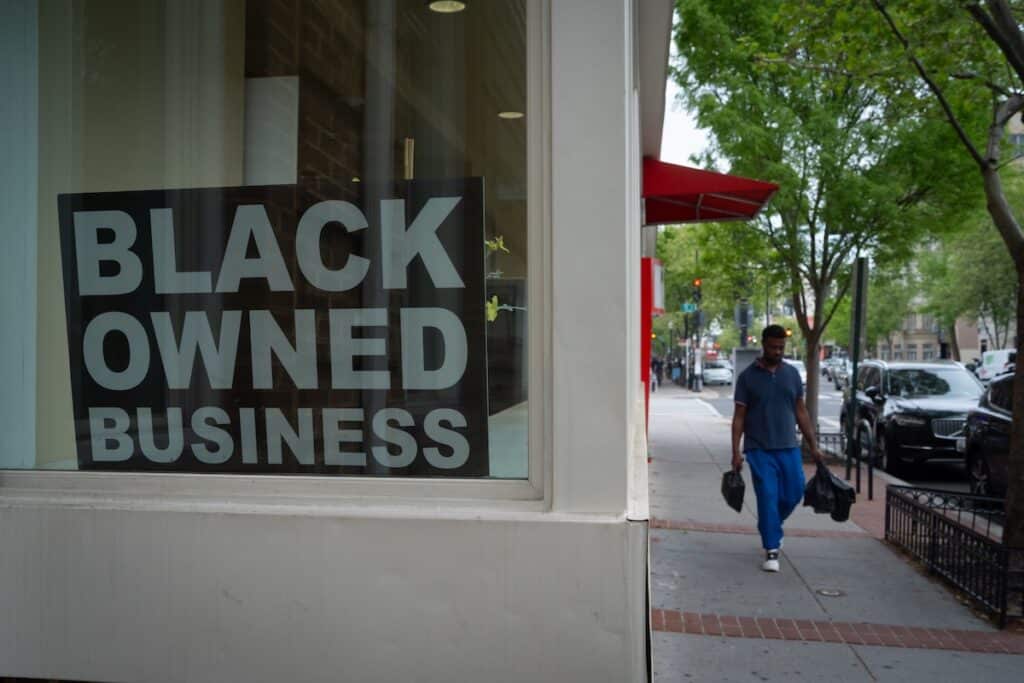
For example, government agencies like the Minority Business Development Agency (MBDA) were designed to promote the growth and competitiveness of businesses owned by people of color, women, and LGBTQ+ people. Established by the Nixon administration in 1969, the MBDA has served as one counterweight to the inequities of the broader financial ecosystem. In 2022, the MDBA distributed $1.6 billion in contracts and $1.2 billion in capital, and was responsible for creating or retaining almost 15,000 jobs. The agency also provided technical assistance, networking opportunities, and other services through its business centers.
Now, that legacy is in jeopardy as the Trump administration attempts to dismantle the agency through an executive order aiming to pull funding from critical parts of the MBDA. This comes after a federal judge ruled that the MBDA’s mandate to specifically serve “minority entrepreneurs” was unconstitutional — despite the discrimination that these entrepreneurs continue to face.
LDF Director of Policy
The MBDA’s programs were never enough to fully address the problems Black business owners face. Now, without the MBDA functioning in its intended capacity, thousands of small businesses lose a crucial source of support and funding access, and bridging the racial gap in business ownership becomes even more difficult. The Trump administration is making these decisions under the guise of fairness, but removing this kind of support does not equate to fairness. On the contrary, it leaves many entrepreneurs to navigate a complex system with fewer tools and resources.
Ultimately, everyone will feel the economic burden of this lost potential. Studies show that if the percentage of Black business ownership was equal to Black people’s share of the population — and if those businesses earned revenue at the same rate as their peers — they would generate an additional $1.6 trillion in revenue and create millions of jobs per year. Ending efforts to level the playing field will weaken our economy, full stop.
At a time when equity programs and entire federal agencies are being dismantled under the guise of fairness and neutrality, it’s tempting for people who believe in the power of our policies and laws to promote real change to fall into despair. However, doing so would ignore the stories that exist beyond the national headlines — the stories of people who create, build, and dream, even when the odds are stacked against them. What’s lost in the news is the day-to-day resilience and innovation of small business owners who sacrifice a great deal to bring some sense of joy and possibility to their communities. And who need more support than ever amid increasingly challenging odds.
The American Dream may still be hard to reach, but it’s still possible to make it a reality for more people. Small business owners, like Bennett, remind us that the structural changes needed to advance an inclusive economy are worth the fight.
LDF’s Equal Protection Initiative (EPI) works to protect and advance efforts to remove barriers to opportunity for Black people in the economy, our educational systems, and other areas.
LDF’s framework for how to move the country toward this goal at this historical inflection point, and how LDF’s Equal Protection Initiative is playing a role in making that happen.
Project 2025’s proposals, from ending data collection on race to weakening the government’s ability to fight discrimination, will frustrate efforts to remedy racial inequality.
